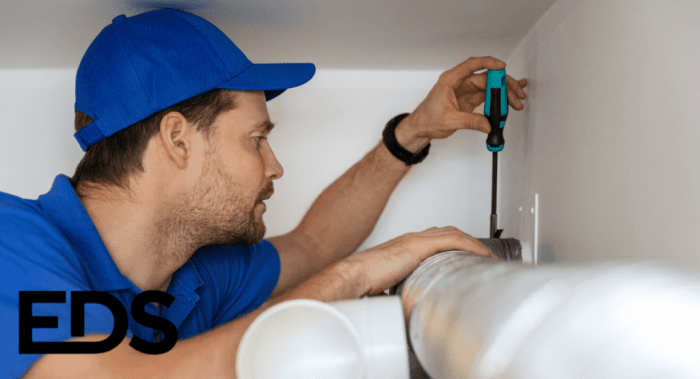In the ever-evolving world of HVAC systems, technology plays a pivotal role in ensuring optimal performance and efficiency. HVAC software with 24/7 technical support emerges as an indispensable tool for businesses seeking to streamline their HVAC operations, minimize downtime, and maximize energy savings.
This comprehensive software solution provides real-time monitoring, remote control, and predictive analytics capabilities, empowering facility managers with unprecedented insights into their HVAC systems. With round-the-clock technical support, businesses can rest assured that any issues or emergencies will be addressed promptly, ensuring uninterrupted operations and a comfortable indoor environment.
Overview of HVAC Software with 24/7 Technical Support
HVAC software with 24/7 technical support provides a comprehensive solution for managing and optimizing HVAC operations. With advanced features and round-the-clock assistance, this software empowers HVAC professionals to streamline their workflows, improve efficiency, and ensure the comfort and safety of occupants.
By utilizing HVAC software, businesses can gain access to a range of benefits, including:
- Improved system performance: HVAC software provides real-time monitoring and control of HVAC systems, allowing for proactive maintenance and optimization. This helps to reduce energy consumption, extend equipment life, and ensure optimal indoor air quality.
- Streamlined maintenance: The software can automate maintenance schedules, track equipment performance, and generate reports, simplifying maintenance tasks and reducing downtime.
- Enhanced diagnostics: With remote monitoring capabilities, HVAC software allows technicians to diagnose issues remotely, reducing the need for on-site visits and minimizing disruption to operations.
Importance of 24/7 Technical Support
Having access to 24/7 technical support is crucial for HVAC professionals, as it provides:
- Round-the-clock assistance: HVAC systems can experience unexpected issues at any time, and having access to technical support around the clock ensures that problems can be resolved quickly and efficiently, minimizing downtime and maintaining occupant comfort.
- Expert guidance: The technical support team can provide expert advice and troubleshooting assistance, helping HVAC professionals resolve complex issues and optimize system performance.
- Peace of mind: Knowing that technical support is available 24/7 provides peace of mind, as businesses can be confident that their HVAC systems are being monitored and supported at all times.
Features and Functionality
HVAC software with 24/7 technical support offers a comprehensive suite of features designed to optimize the performance of heating, ventilation, and air conditioning systems. These software solutions provide a wide range of capabilities, including:
By leveraging these features, HVAC professionals can gain valuable insights into system performance, identify potential issues, and make informed decisions to improve efficiency and reduce operating costs.
Key Features Comparison
The following table provides a comparison of different HVAC software options based on their key features:
| Feature | Software A | Software B | Software C |
|---|---|---|---|
| System Design and Analysis | Yes | No | Yes |
| Energy Modeling and Simulation | Yes | Yes | No |
| Fault Detection and Diagnostics | Yes | No | Yes |
| Remote Monitoring and Control | Yes | Yes | Yes |
| Technical Support | 24/7 | 8-5 | 24/7 |
Examples of Feature Applications
Here are a few examples of how HVAC software features can be used to improve system performance:
- System Design and Analysis: Software can be used to model and simulate different HVAC system designs, helping engineers optimize system performance and efficiency.
- Energy Modeling and Simulation: Software can help predict energy consumption and identify areas for improvement, enabling businesses to reduce their energy costs.
- Fault Detection and Diagnostics: Software can monitor system performance and identify potential issues before they become major problems, reducing downtime and maintenance costs.
- Remote Monitoring and Control: Software allows HVAC professionals to remotely monitor and control systems, enabling them to make adjustments and respond to issues quickly and efficiently.
- Technical Support: 24/7 technical support provides HVAC professionals with access to expert assistance whenever they need it, ensuring that systems are operating at optimal levels.
Implementation and Integration
Implementing and integrating HVAC software with 24/7 technical support involves several key steps. These steps ensure a smooth and efficient integration process, maximizing the benefits of the software.
A checklist of best practices for a successful implementation includes:
Planning and Preparation
- Identify the specific needs and goals for the HVAC software.
- Gather requirements from all stakeholders, including engineers, technicians, and management.
- Select a software solution that meets the identified needs and requirements.
- Establish a clear implementation plan and timeline.
- Secure necessary resources, including hardware, software, and training.
Installation and Configuration
- Install the HVAC software on the designated hardware.
- Configure the software according to the specific needs and requirements.
- Integrate the software with other relevant systems, such as building automation systems or energy management systems.
Training and Support
- Provide comprehensive training to all users on how to effectively use the software.
- Establish a support system to assist users with any questions or issues.
- Ensure ongoing support and maintenance to keep the software up-to-date and functioning optimally.
Training staff on how to use the HVAC software effectively is crucial for successful implementation. Proper training ensures that users are proficient in operating the software, maximizing its functionality and realizing its full benefits. Training should cover all aspects of the software, including data entry, system configuration, and report generation.
Hands-on training sessions, workshops, and online tutorials can be effective methods for delivering training.
Benefits and ROI

Implementing HVAC software with 24/7 technical support can provide numerous benefits for businesses, leading to improved efficiency, reduced costs, and enhanced customer satisfaction.
- Improved Efficiency: Automated tasks, streamlined workflows, and real-time data access can significantly enhance operational efficiency.
- Reduced Costs: Lower energy consumption, reduced maintenance expenses, and optimized inventory management can lead to substantial cost savings.
- Enhanced Customer Satisfaction: Faster response times, proactive maintenance, and improved communication with customers can result in increased satisfaction and loyalty.
Case Studies and Testimonials
Numerous businesses have experienced positive results from using HVAC software with 24/7 technical support:
“Our energy consumption has decreased by 15% since implementing the software, resulting in significant cost savings.”
Facility Manager, Fortune 500 Company
“The 24/7 technical support has been invaluable in resolving issues quickly and efficiently, minimizing downtime and maximizing productivity.”
HVAC Technician, Small Business Owner
Return on Investment (ROI)
Calculating the ROI for implementing HVAC software with 24/7 technical support requires consideration of various factors, including:
– Energy savings
- Reduced maintenance costs
- Improved customer satisfaction
- Increased efficiency
The specific ROI will vary depending on the size and complexity of the business. However, studies have shown that businesses can typically expect a positive ROI within 1-3 years of implementation.
Vendor Selection and Evaluation

Selecting the right HVAC software vendor is crucial for maximizing the benefits and minimizing the risks associated with software implementation. Here’s a comprehensive guide to help businesses evaluate and choose the best vendor for their specific needs.
Consider the following factors when evaluating vendors:
Vendor Offerings
- Software functionality: Assess the software’s capabilities to meet your business requirements.
- Integration options: Evaluate the software’s ability to integrate with your existing systems.
- Scalability: Ensure the software can adapt to your future growth and changing needs.
Pricing and Licensing
- Software cost: Compare the upfront and ongoing costs of different vendors.
- Licensing terms: Understand the vendor’s licensing model and any restrictions or limitations.
- Support and maintenance costs: Factor in the cost of ongoing support and maintenance services.
Customer Support
- Technical support availability: Evaluate the vendor’s support hours, response times, and communication channels.
- Training and documentation: Assess the vendor’s training and documentation offerings to ensure adequate support.
- Customer references: Request references from existing customers to gauge their satisfaction with the vendor’s support.
Negotiating a Contract
- Clearly define the scope of work: Ensure the contract Artikels the software’s functionality, integration requirements, and implementation timeline.
- Establish clear pricing and payment terms: Negotiate the software cost, licensing terms, and support and maintenance fees.
- Include performance guarantees: Specify performance metrics and penalties for non-compliance.
Outcome Summary
Investing in HVAC software with 24/7 technical support is a strategic decision that delivers tangible benefits, including reduced energy consumption, extended equipment lifespan, and enhanced occupant comfort. By embracing this technology, businesses can transform their HVAC operations, optimize resource allocation, and gain a competitive edge in today’s demanding market.
FAQ
What are the key benefits of using HVAC software with 24/7 technical support?
HVAC software with 24/7 technical support offers numerous advantages, including real-time monitoring, remote control, predictive analytics, and round-the-clock expert assistance. These capabilities enable businesses to optimize energy consumption, minimize downtime, extend equipment lifespan, and ensure occupant comfort.
How can HVAC software streamline HVAC operations?
HVAC software streamlines HVAC operations by providing a centralized platform for monitoring, controlling, and analyzing HVAC systems. It automates tasks, generates reports, and provides insights that help facility managers make informed decisions, reduce energy waste, and improve overall system efficiency.
Why is 24/7 technical support crucial for HVAC software?
24/7 technical support is essential for HVAC software because HVAC systems operate 24 hours a day, 7 days a week. Having access to expert assistance around the clock ensures that any issues or emergencies can be addressed promptly, minimizing downtime and maintaining a comfortable indoor environment.